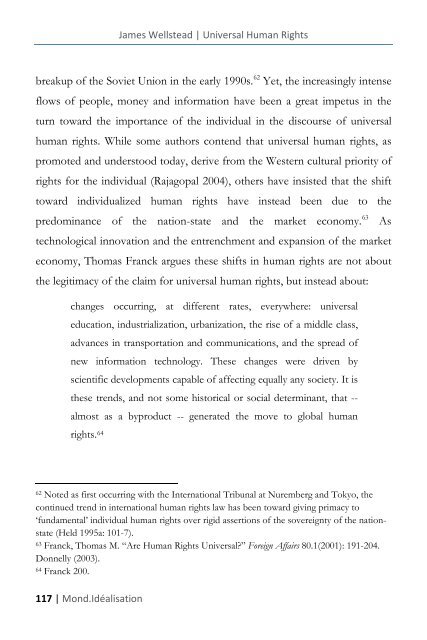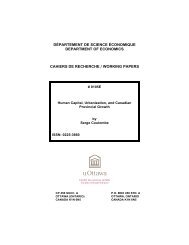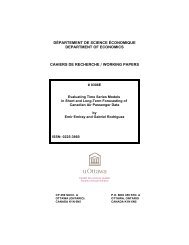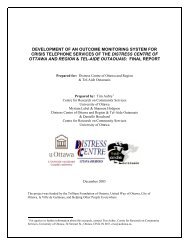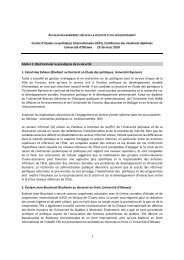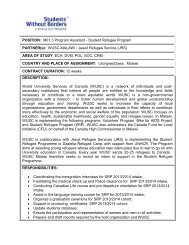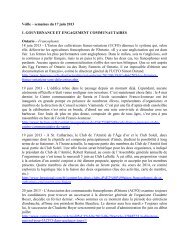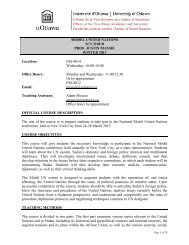GLOB.IDEALIZATION MOND.IDÉALISATION - Faculty of Social ...
GLOB.IDEALIZATION MOND.IDÉALISATION - Faculty of Social ...
GLOB.IDEALIZATION MOND.IDÉALISATION - Faculty of Social ...
You also want an ePaper? Increase the reach of your titles
YUMPU automatically turns print PDFs into web optimized ePapers that Google loves.
117 | Mond.Idéalisation<br />
James Wellstead | Universal Human Rights<br />
breakup <strong>of</strong> the Soviet Union in the early 1990s. 62 Yet, the increasingly intense<br />
flows <strong>of</strong> people, money and information have been a great impetus in the<br />
turn toward the importance <strong>of</strong> the individual in the discourse <strong>of</strong> universal<br />
human rights. While some authors contend that universal human rights, as<br />
promoted and understood today, derive from the Western cultural priority <strong>of</strong><br />
rights for the individual (Rajagopal 2004), others have insisted that the shift<br />
toward individualized human rights have instead been due to the<br />
predominance <strong>of</strong> the nation-state and the market economy. 63<br />
As<br />
technological innovation and the entrenchment and expansion <strong>of</strong> the market<br />
economy, Thomas Franck argues these shifts in human rights are not about<br />
the legitimacy <strong>of</strong> the claim for universal human rights, but instead about:<br />
changes occurring, at different rates, everywhere: universal<br />
education, industrialization, urbanization, the rise <strong>of</strong> a middle class,<br />
advances in transportation and communications, and the spread <strong>of</strong><br />
new information technology. These changes were driven by<br />
scientific developments capable <strong>of</strong> affecting equally any society. It is<br />
these trends, and not some historical or social determinant, that --<br />
almost as a byproduct -- generated the move to global human<br />
rights. 64<br />
62 Noted as first occurring with the International Tribunal at Nuremberg and Tokyo, the<br />
continued trend in international human rights law has been toward giving primacy to<br />
‘fundamental’ individual human rights over rigid assertions <strong>of</strong> the sovereignty <strong>of</strong> the nationstate<br />
(Held 1995a: 101-7).<br />
63 Franck, Thomas M. “Are Human Rights Universal?” Foreign Affairs 80.1(2001): 191-204.<br />
Donnelly (2003).<br />
64 Franck 200.


